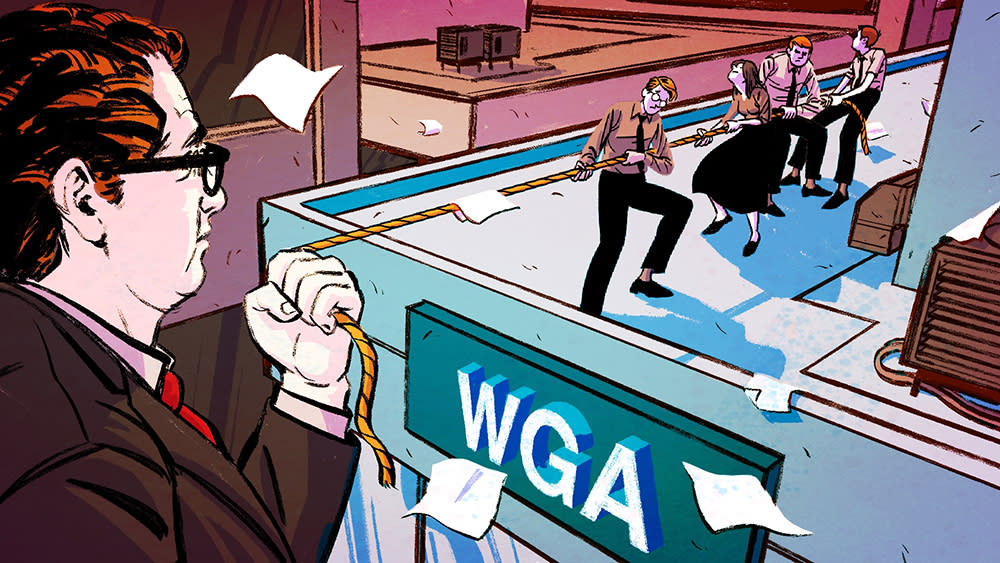Writers Guild Leaders Seek Hikes in Pension Plan Contributions From Studios

Click here to read the full article.
Leaders of the Writers Guild of America are seeking significant hikes from studios in pension plan contributions at negotiations that launched this week.
“Now, we need to secure additional funding from our employers in order to put our pension plan on strong enough financial footing to weather this market downturn and preserve pension benefits for future retirees,” the WGA negotiating committee said in a message sent to members Thursday.
More from Variety
WGA Seeks Gains in Script Fees Amid Contract Negotiations With Studios
Writers Guild Contract Negotiations Starting Remotely Amid Coronavirus Pandemic
Writers Guild Contract Negotiations With Studios Pushed Back a Week
Representatives for the Alliance of Motion Picture and Television Producers and the WGA are facing a June 30 expiration of the current film and TV contract. Talks are being conducted remotely due to the coronavirus pandemic after two start dates were vacated.
The WGA noted that the 2017 contract negotiations — which had included a strike authorization vote — addressed the issue of a massive potential deficit in its health plan. It was sent to members a day after the guild detailed its goals for increased script fees.
Read the full memo below:
“In 2017, after years of healthcare costs outpacing inflation, we needed more money for our health plan. At the time, our plan was projected to run a deficit of $70 million by 2019. We used our collective power, including taking a strike authorization vote, to secure an increase in the employer contribution rate from 9.5% to 11.5% over the life of the 2017 MBA. Today our health plan is on solid ground; we ran surpluses over the last three years, and increased the number of months our health plan has in reserve.
Now, we need to secure additional funding from our employers in order to put our pension plan on strong enough financial footing to weather this market downturn and preserve pension benefits for future retirees. Currently, our employers contribute 8.5% of our compensation to the plan, which totals almost $150 million annually. While our pension plan is designed to pay out benefits over many decades, federal legislation mandates a short-term focus on investment returns that can threaten our benefits. In 2006, Congress passed the Pension Protection Act (PPA), which added new requirements for pension plans like ours that could require us to make changes quickly in response to a short-term decline in investment returns. Due to this law, and lingering effects of the 2008 market crash, a severe enough market downturn could force us to make future benefit cuts.
An increase in the employer contribution rate is not enough. We need to substantially increase the caps on contributions for screenwriters and writers of long-form TV. Members of teams should get full contributions for their work as individuals, not on reduced amounts simply because they are employed as a team. We also need to increase the type of compensation and residuals subject to benefit contributions. Most TV residuals generate contributions to the pension plan and health funds, but it’s not the same for streaming residuals. As streaming reuse is replacing TV reruns, streaming residuals need to generate contributions to our benefit funds. We need to change that now before streaming residuals replace other residuals, ultimately putting additional financial pressure on both the pension and health funds.
Our pension plan is a critical source of long-term financial security for middle-class writers, and a benefit that writers who came before us fought hard to achieve. Even if you’re early in your career and not thinking about retirement, one day it will come, and we want to make certain your WGA pension will be there for you.”
Best of Variety
Sign up for Variety’s Newsletter. For the latest news, follow us on Facebook, Twitter, and Instagram.

